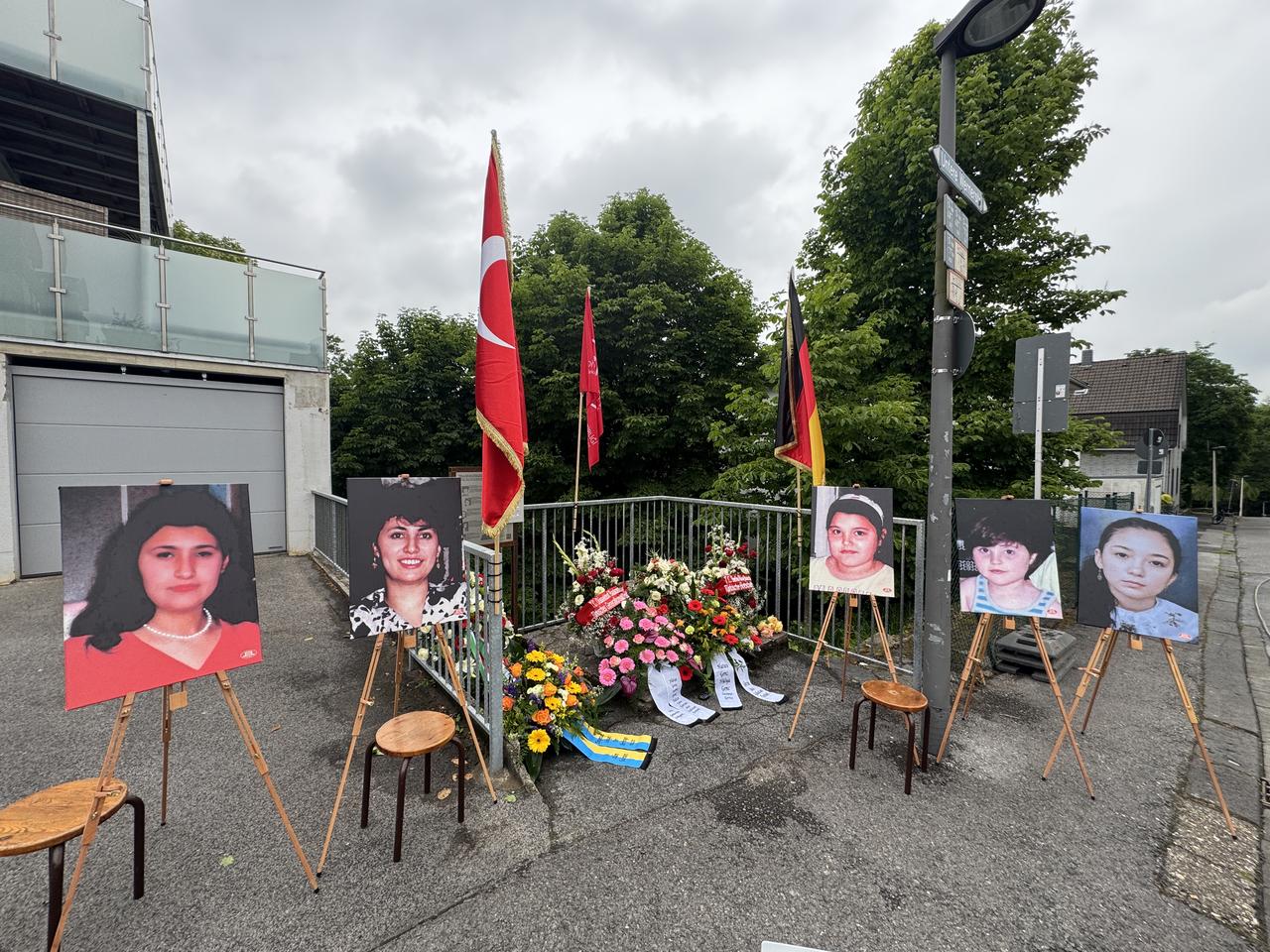
Thirty-two years have passed since the Solingen racist attack in Germany, where officials and Turkish community members gathered to commemorate the tragic incident that killed five Turkish people when their home was firebombed by racists on May 29, 1993.
The memorial ceremony took place in front of the house on Untere Werner Street where the Genc family lost five family members in the tragic incident that shocked Germany and highlighted rising xenophobic violence.
"We remember with respect our five citizens who lost their lives 32 years ago in the racist Solingen attack," the Turkish Foreign Ministry said in a statement on Wednesday.
"On this occasion, we once again honour the memory of Mevlude Genc… with respect and gratitude," the ministry said.
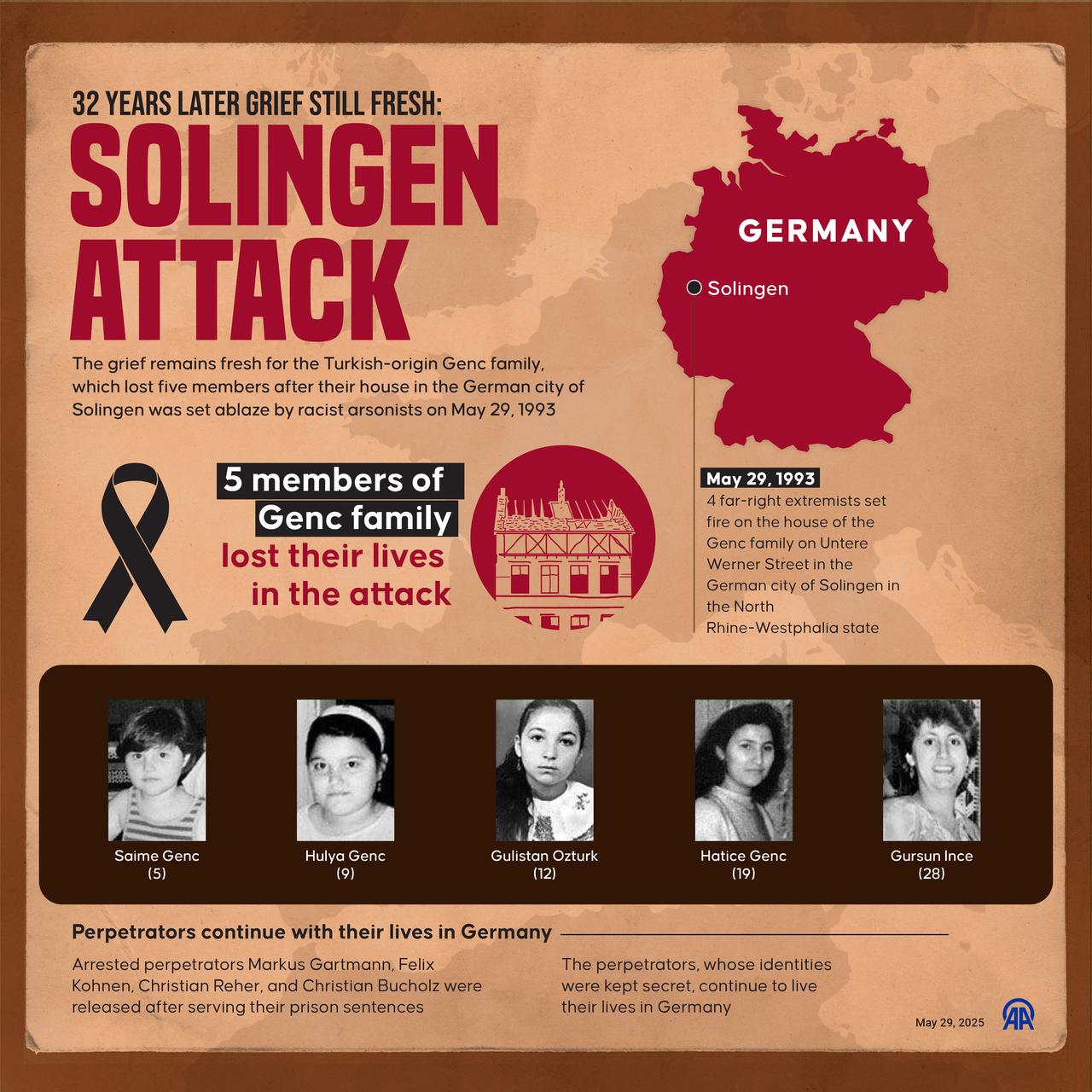
Türkiye's Berlin Ambassador Gokhan Turan, Solingen Mayor Tim Kurzbach, German politicians, civil society organizations, association representatives, and citizens attended the ceremony organized by various associations.
During the event, participants recited the Quran, offered prayers, and delivered speeches remembering the victims and addressing ongoing concerns about racism in Germany.
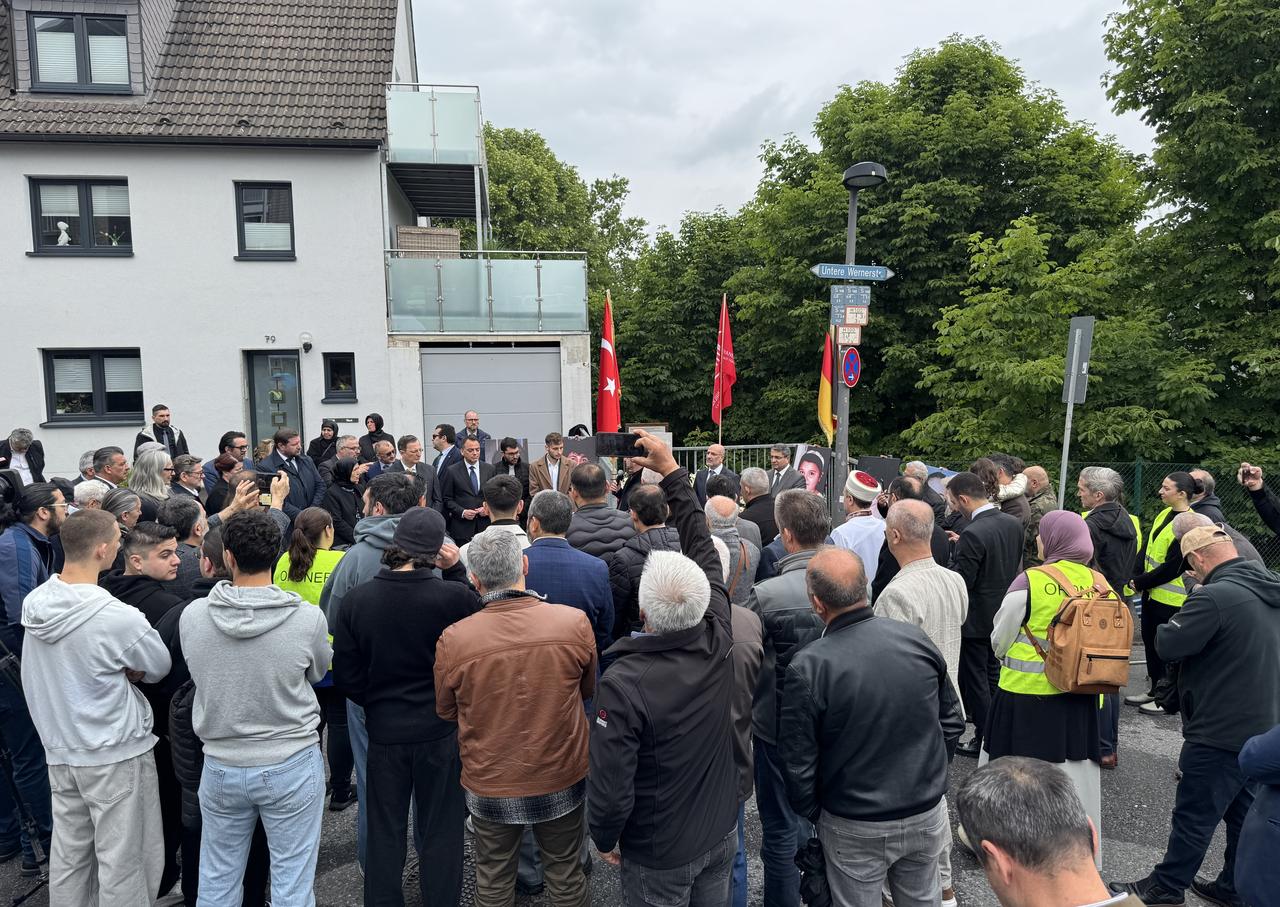
Ambassador Turan began his speech by reading the names of those who lost their lives in the racist attack, paying tribute to the victims and offering condolences to the Genç family, particularly remembering Mevlude Genc, who promoted peace despite losing five children and passed away on October 30, 2022.
Turan highlighted that racist attacks continued in Germany even after the Solingen tragedy, citing the National Socialist Underground (NSU) terrorist organization's subsequent racist assaults.
"This issue is of great importance not only for those of Turkish, Muslim or immigrant origin, but for the entire German society. Because the racist, xenophobic and Islamophobic currents that have gained momentum in Europe and Germany recently essentially threaten the security, peace, well-being and common future of the entire German people," Turan stated.
The ambassador acknowledged German society's awareness of the problem: "We know that the vast majority of German society is aware of the danger and feels great discomfort and concern about rising racism and xenophobia."
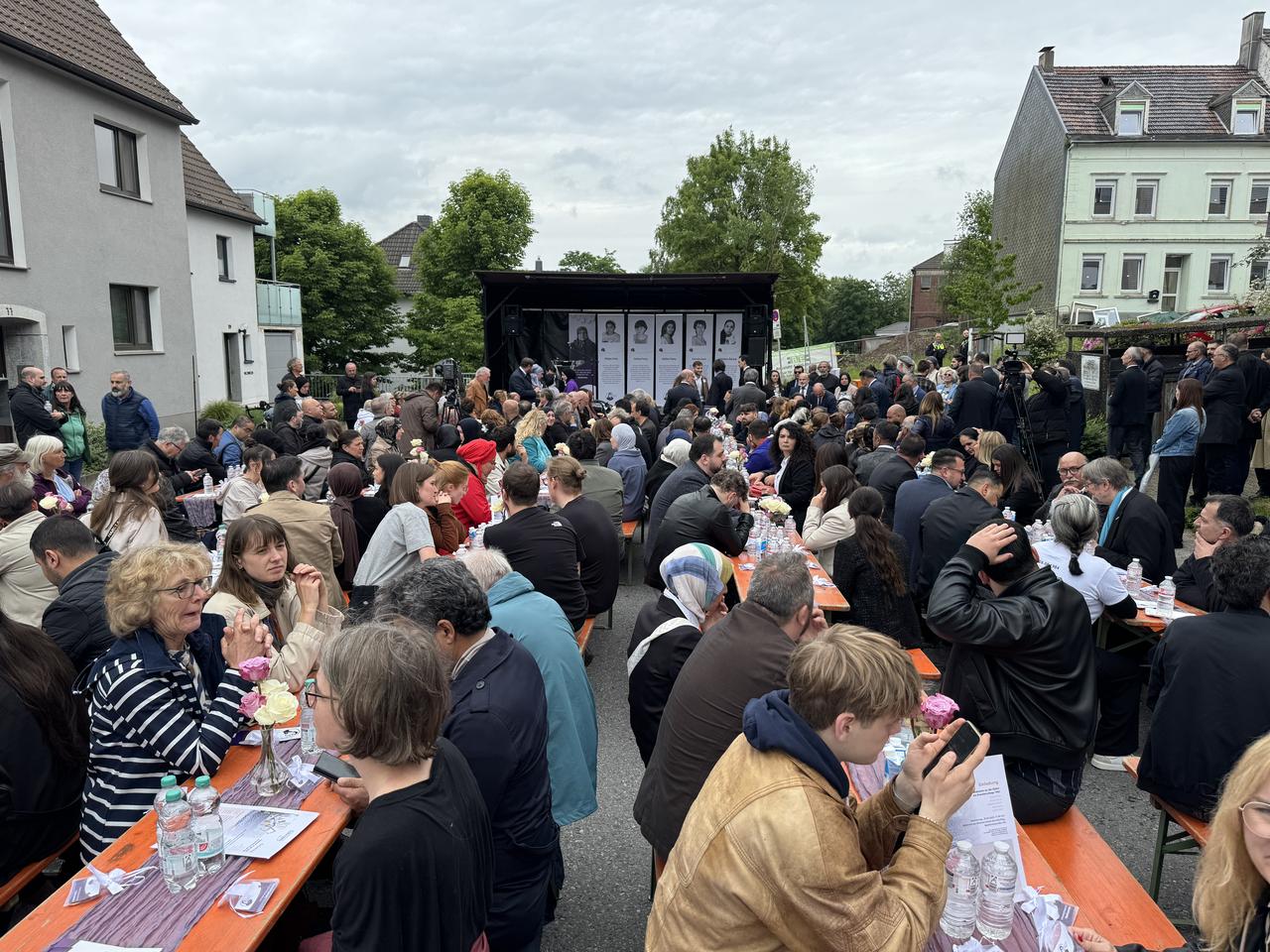
Solingen Mayor Tim Kurzbach acknowledged that a grave crime was committed in Solingen 32 years ago, stating they deeply feel the pain and sorrow of this tragic event.
Kurzbach also commemorated Mevlude Genc, who despite losing five children, dedicated her life to promoting peace messages throughout her lifetime.
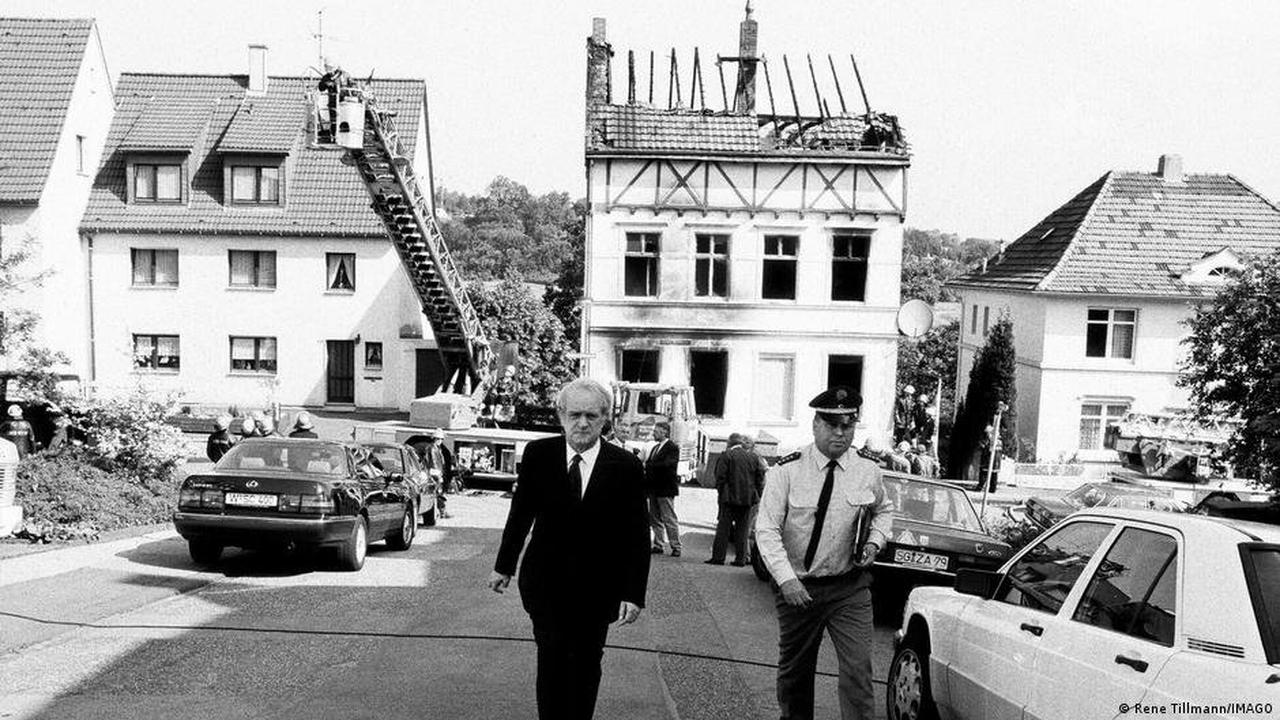
The Solingen tragedy occurred on May 29, 1993, when the Genc family's house on Untere Werner Street in the North Rhine-Westphalia state city was firebombed by racists. Five people lost their lives in the attack: Gursun Ince (28), Gulustan Ozturk (12), Hatice Genc (19), Hülya Genc (9), and Saime Genc (5).
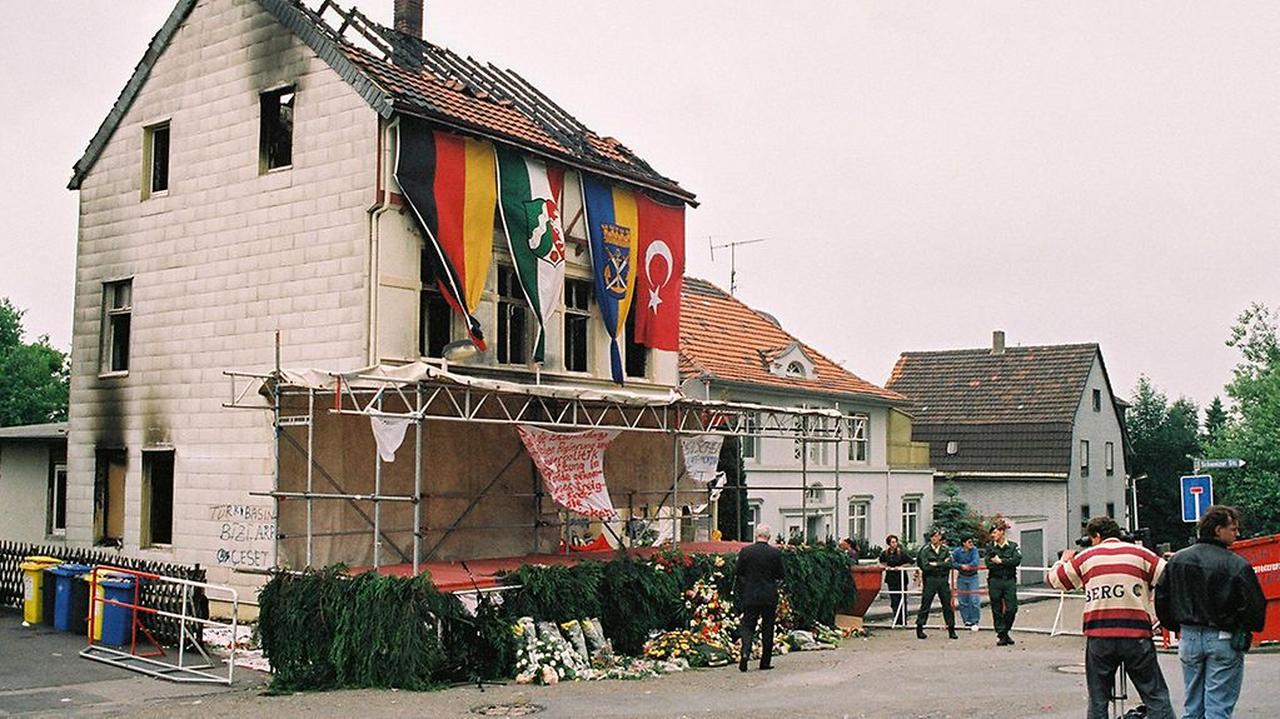
The perpetrators identified as Markus Gartmann, Felix Kohnen, Christian Reher, and Christian Buchholz were arrested and sentenced to prison terms by the court. After serving their sentences, the attackers were released and continue to live in Germany with changed identities that remain secret.
The ceremony particularly honored Mevlude Genc, who became a symbol of peace and reconciliation despite her tremendous personal loss. After losing five family members in the attack, she dedicated her remaining years to promoting dialogue and understanding between communities.
Her death in October 2022 was widely mourned as the loss of a voice for peace and tolerance in German-Turkish relations.
The memorial comes at a time when European countries, including Germany, continue to grapple with rising xenophobia and far-right movements targeting immigrant communities.
Officials used the anniversary to emphasize the importance of vigilance against racist ideologies and the need for continued efforts to protect minority communities and promote social harmony.
The Solingen attack remains one of the most significant racist incidents in post-war German history, serving as a stark reminder of the consequences of unchecked hatred and the importance of protecting vulnerable communities from extremist violence.